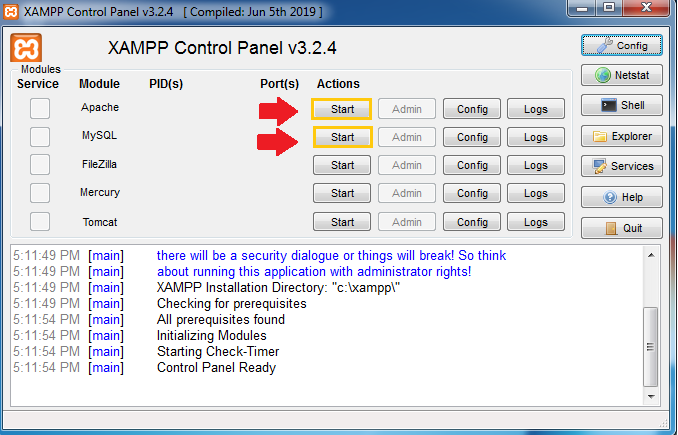

(By convention, all web content goes under the htdocs folder.) If you do this, your Joomla! (and any other local website folders) will go into the folder c:\xampp\htdocs. If you are on Windows XP or 2003 they are not supported by the main package but there are compatible versions of XAMPP for these platforms listed on the download page (but you will only be able to run PHP 5.4 or lower - and therefore will only be able to test Joomla 3.x and lower).įor Windows, it is recommended that you install XAMPP in c:\xampp (not in c:\program files). Detailed installation instructions for Windows are available here. You can use the XAMPP installer executable (for example, xampp-windows-圆4-7.4.4-0-VC15-installer.exe). But, to be safe, disable the option in Skype. If Apache starts as a service, it will take 80 before Skype starts and you will not see a problem. If you use Skype, go into the Tools-Options-Advanced-Connection panel and deselect the Use 80 and 443 as alternatives for incoming connections option. Important Note Regarding XAMPP and Skype: Apache and Skype both use port 80 as an alternative for incoming connections. Downloads are available for Linux, Windows and Mac OS X. The latest version of XAMPP is available at the Apache Friends website. This allows you to create the environment you need to run Joomla! on your local machine. XAMPP is an easy-to-install package that bundles the Apache web server, PHP, Xdebug, and the MySQL database. 1.2.4 Creating a Link in the Ubuntu Menu.


 0 kommentar(er)
0 kommentar(er)
